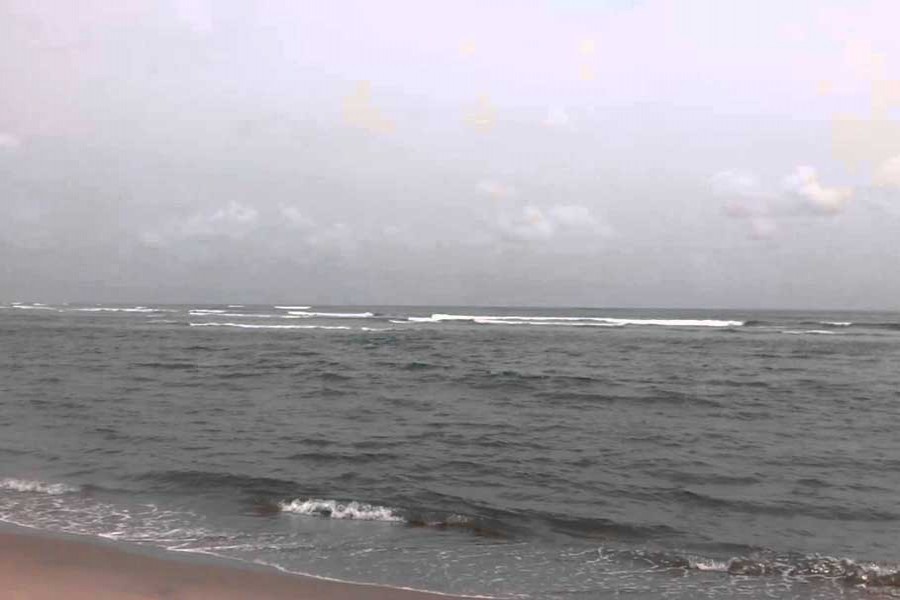Bangladesh in a geopolitical juncture with promises of blue economy: Analysts

Published :
Updated :

In the potential hotspot of great power rivalry and amid threats of civil war in the neighbourhood, Bangladesh needs to formulate a package of policies for pursuing economic interests utilising its sea outlet, suggests a panel of foreign policy analysis.
They emphasise ‘preservation of peace’ in the Indo-Pacific region as a prerequisite for uninterrupted inter-state trading activities and consistent economic growth, saying Bangladesh is now an active player, which should maintain a balance in external relations.
“The countries (including Bangladesh) need to focus on wise diplomacy and own capability… We’ve to do our best to pursue a rule-based maritime order,” Tanaka Akihiko, President of Japan’s National Graduate Institute for Policy Studies, said at a virtual discussion on Saturday.
He pointed out that Bangladesh should strengthen its manufacturing base for trade competitiveness and a deep sea port being constructed at Matarbari, Cox’s Bazar, would help increase its advantages.
In a lecture on ‘Connectivity in the Bay of Bengal Area: Challenges and Options for Bangladesh’, Professor Tanaka reiterated Japan’s support to free and open Indo-Pacific region and expressed concern at the rise of China as an economic and military global power that has taken Belt and Road Initiative to widen its spheres of influence.
Former foreign secretary of Bangladesh Shahidul Haque underlined the importance of non-confrontational status in the Indo-Pacific region, now considered the heart of geopolitics and global economic activities.
He mentioned that Bangladesh and other countries are also in a critical geostrategic position in view of the volatile situation in Afghanistan and Myanmar with potential ramifications for others.
Addressing Bangladesh’s concern at the Rohingya issue, the Japanese Ambassador in Dhaka Ito Naoki stated that Tokyo supports the repatriation of Myanmar as the solution to the crisis.
However, Mr Shahidul Haquq, added, unlike the pre-colonial era, the countries of the region including Bangladesh have a different kind of maturity and capability to face the challenges at hand.
Rivalry between the US and China in the Indo-Pacific region has become a strategic headache for the countries in South Asia and Southeast Asia in particular, the discussant said.
In the ‘post-US’ Indo-Pacific, Mr Shahidul Haque said, there would be more than one power that would matter. “Bangladesh, at its 50, is also a player and an active player.”
Professor Tanaka explained that for Bangladesh’s imports, China, India, Japan and ASEAN countries would remain important and for exports, the European Union and the US are still important. “It must be careful so that it does not fall into debt trap,” he said referring to growing economic engagement with China.
Real Admiral (retired) Mohammad Khorshed Alam, who played a crucial role in Bangladesh’s maritime delimitation victory, said that Bangladesh is yet to fully exploit the potential of the blue economy in terms of trade, extraction of mineral resources and fishing in the Bay of Bengal.
“It (blue economy) could be at least half the size of the garment export (value). We need to prepare a package (of policies and steps) to utilise the potential,” he expressed his views.
He further shared his concern over drug, piracy, pollution and dumping of dead fish in the sea, apart from rivalry, and insisted that there is no alternative to rule-based maritime order.
South Asian Institute of Policy at North South University and the Embassy of Japan in Bangladesh jointly organised the discussion which was moderated by Dr M Jashim Uddin of the university.


 For all latest news, follow The Financial Express Google News channel.
For all latest news, follow The Financial Express Google News channel.